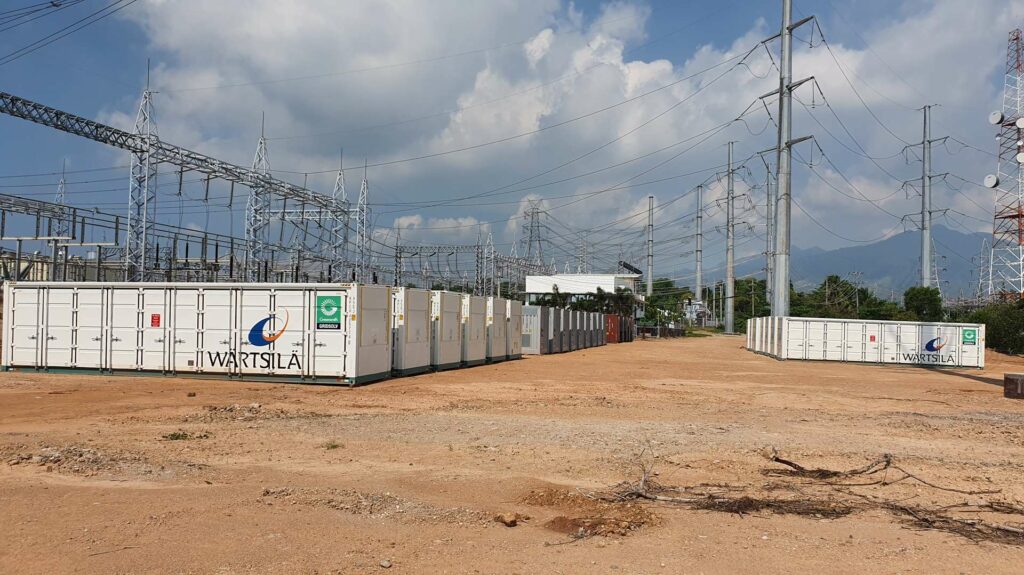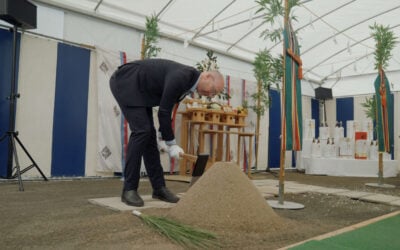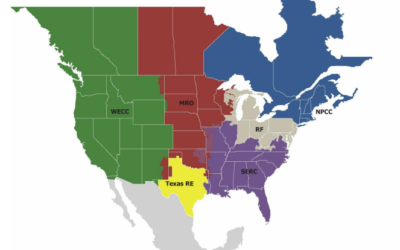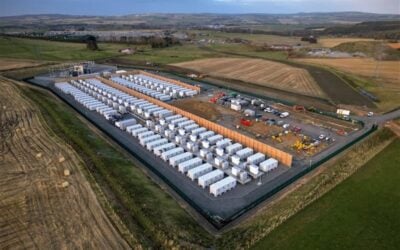
Wärtsilä will deploy a 5.2MW / 5.2MWh energy storage system (ESS) to help support Taiwan’s grid, joining the frequency regulation market launched this year by state-owned utility Taiwan Power Company (Taipower).
The Finnish battery storage technology provider and system integrator said earlier this week that it has been contracted to supply the system by Shang Fa Construction on behalf of its customer, North-Star International, a New Taipei-headquartered company which operates gasoline stations and other service-led offerings for the automotive industry.
Enjoy 12 months of exclusive analysis
- Regular insight and analysis of the industry’s biggest developments
- In-depth interviews with the industry’s leading figures
- Annual digital subscription to the PV Tech Power journal
- Discounts on Solar Media’s portfolio of events, in-person and virtual
“North-Star moves actively towards renewable energy solutions, including power generation, EV charging, energy storage, and electricity sales. Our aim is to provide successful integration of renewable energy services,” North-Star International spokesperson and vice chairman Eddie Ho said.
“Wärtsilä has strong energy storage systems and extensive global construction experience, as well as complete technology in energy software management, which can shorten the learning curve for us in energy storage.”
Taiwan is a relatively small territory but is home to many major manufacturing centres, including semi-conductors and other high tech industry sectors. As such it has relatively high power demand and a need for good quality power. As the island targets achieving 20% renewable energy by 2025, Taipower has recognised that battery storage can provide ancillary services to give the grid the stability it needs.
The utility has launched four different categories of ancillary services markets, including fast response grid-balancing, frequency regulation, spinning reserve and supplemental reserve. Taipower is thought to be aiming to procure about 590MW of energy storage capacity for these services over the next four years and awarded about 30MW of frequency regulation and fast-response load balancing services last year.
About 15MW of that was for its Energy Storage Automatic Frequency Control (AFC) Frequency Regulation Reserve Supporting Service; from 30 bidders, five companies were successful, including battery storage suppliers like Tesla, Samsung and E-One Moli Energy as well as other equipment makers from Europe and the US. The AFC service helps maintain the grid at its operating frequency within close boundaries of 60Hz.
Wärtsilä said its 5.2MW battery ESS (BESS), called Beimen Energy Storage project, will be deployed at a site in the city of Kaohsiung. Comprising the company’s Gridsolv Quantum containerised BESS solution with integrated power conversion system (PCS) and the Wärtsilä GEMS digital energy platform which can manage, control and dispatch power not just from batteries but from any digitally-controllable energy asset. It is expected to be operational towards the end of the first quarter of next year.
Recently, US energy storage system integrator Powin Energy, which has some manufacturing facilities in Taiwan, said it partnered with local industrial equipment company TPE Energy to install a 2MW / 3MWh BESS which will perform AFC services for Taipower. Another name to watch closely in the region might be New HOrizons Ahead (NHOA), the re-branded name for ENGIE EPS, which was majority acquired by Taiwan Cement Corporation (TCC) in July.
“This order represents our first energy storage contract for Taiwan’s competitive market, and is an endorsement of the global acknowledgement of our advanced technology. The system will ensure that a high-quality power supply is maintained through seamlessly integrating renewables into the grid,” Wärtsilä’s energy business director for North and South East Asia, Nicolas Leong, said.
A few weeks ago Wärtsilä noted that its order intake and growth across its energy storage business was strong in the first half of 2021, despite the coronavirus pandemic impacting activities across its other industry segments including thermal power plants and the marine sector. This week Energy-Storage.news reported that Australian utility AGL placed its first 250MW order with the company for a BESS project in South Australia.






